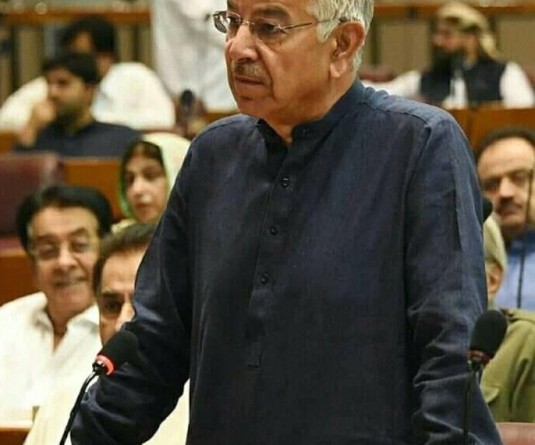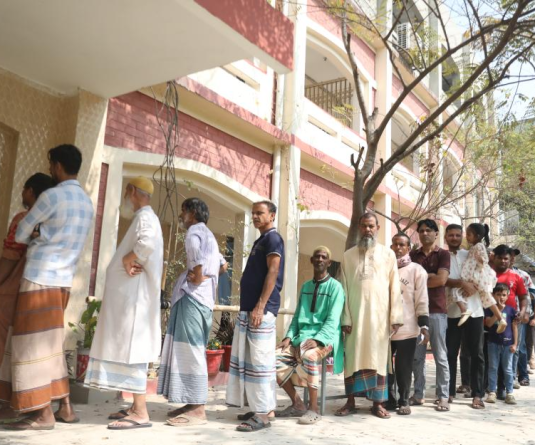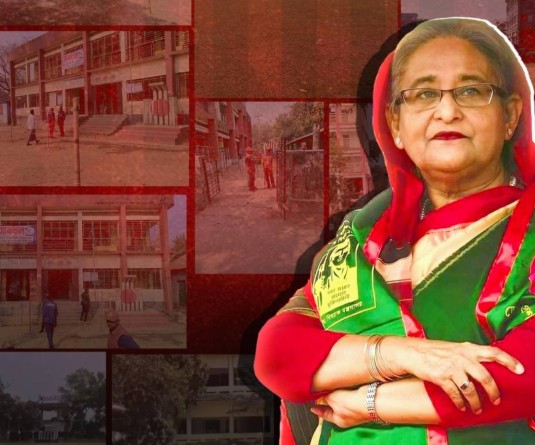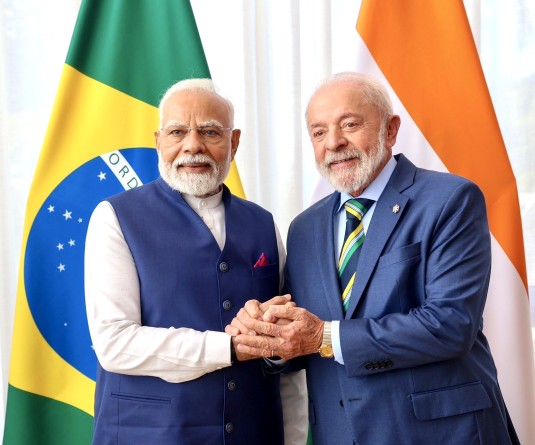Australia's Prime Minister-elect Anthony Albanese, center, signs a poster for twin brothers Dimitri and Stavros, bottom right, as he visits a coffee shop in suburban Marrickville, Sydney on May 22, 2022. Albanese has promised to rehabilitate Australia's international reputation as a climate change laggard with steeper cuts to greenhouse gas emissions. (AP Photo)
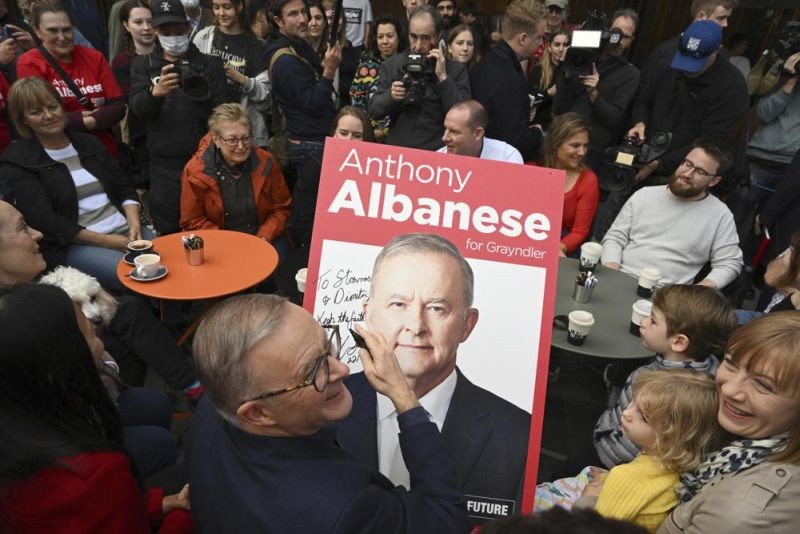
Sydney, May 22 (AP): Australians awoke on Sunday to a new prime minister in Anthony Albanese, the centre-left Labour Party leader whose ascension to the nation's top job from being raised in social housing by a single mother on a disability pension was said to reflect the changed fabric of the country today.
The 59-year-old career politician, who has described himself as the only candidate with a non-Anglo Celtic name to run for prime minister in the 121 years the office has existed, referred to his humble upbringing in the inner-Sydney suburb of Camperdown while thanking electors for making him the country's 31st leader.
It says a lot about our great country that a son of a single mom who was a disability pensioner, who grew up in public housing down the road in Camperdown, can stand before you tonight as Australia's prime minister, Albanese told jubilant supporters after tipping Scott Morrison out of office to end nine years of conservative rule.
Every parent wants more for the next generation than they had. My mother dreamt of a better life for me. And I hope that my journey in life inspires Australians to reach for the stars, he said.
But it remained unclear whether Albanese's party could form a majority government or have to rely on the support of an increased number of independents and minor party lawmakers who won seats in Saturday's election, in results analysts described as extremely complicated, and which also mirrored the face of modern Australia.
With counting set to continue for many days as postal votes are tallied, one prospect that emerged was that Albanese may need to be sworn in as acting prime minister to attend Tuesday's Quad summit in Tokyo with US President Joe Biden, Japanese Prime Minister Fumio Kishida and Indian Prime Minister Narendra Modi.
The election delivered a clear rebuke to Australia's traditional two-party system, both to Labour and the heavily defeated conservative coalition led by the Liberal party's outgoing Prime Minister Morrison. The major parties bled votes to fringe parties and independents, including in many seats considered Labour or coalition strongholds.
Needing 76 seats in the lower Parliamentary chamber, the House of Representatives, to govern in its own right, Labour on Sunday afternoon was being called the winner in 71, with 67% of votes counted, according to the Australian Broadcasting Corp.
The Liberal-National coalition was ahead in just 52 drastically down from its bare-majority 76 in the 2019 poll, in what analysts called a fierce rejection of Morrison and his team's handling of many issues in its three-year term including climate, COVID-19, women's rights, political integrity and natural disasters such as bushfires and floods.
A total of 15 seats had been declared for independents or minor party candidates. Of these, three were from the environment-centric Green party and 12 were non-aligned politicians, with up to nine of those so-called teal independents.
In a new wave in Australian politics, the teal independents are marketed as a greener shade than the Liberal Party's traditional blue colour and want stronger government action on reducing Australia's greenhouse gas emissions than either the government or Labour are proposing.
Most of their successful candidates are women, their success seen partly as a repudiation of Morrison for his handling of gender issues including sex scandals that have rocked Parliament during his latest three-year term.
While Labour will form either a majority or minority government, both major parties lost ground, with support for the coalition dropping by more than 6% from the 2019 election, and Labour's vote falling by around 1.2% as of Sunday morning.
Albanese vowed to bring Australians together, increase investment in social services and end the climate wars .
Speaking to reporters while walking his dog in his electorate on Sunday morning, Albanese evoked a more cooperative approach to Parliamentary business possibly unavoidable if Labour cannot form a majority government and described his victory as a really big moment .
It's something that's a big moment in my life, but what I want it to be is a big moment for the country, he said. I do want to change the country. I want to change the way that politics operates in this country.
Greens leader Adam Bandt concurred, saying his party wanted to work with the next government to tackle the climate crisis and an inequality crisis he said was threatening Australia.
The Liberal vote went backwards, the Labour vote went backwards, he told reporters. More people turned to the Greens than ever before...because we said that politics needs to be done differently.
Morrison, who became prime minister after an internal party coup in 2018, said he would stand down as Liberal leader. His popularity had waned dramatically since his surprise 2019 election victory, including after taking a vacation in Hawaii during Australia's ravaging bushfires in the summer of 2019-20 and more lately amid the Solomon Islands' strategic alliance with China.


